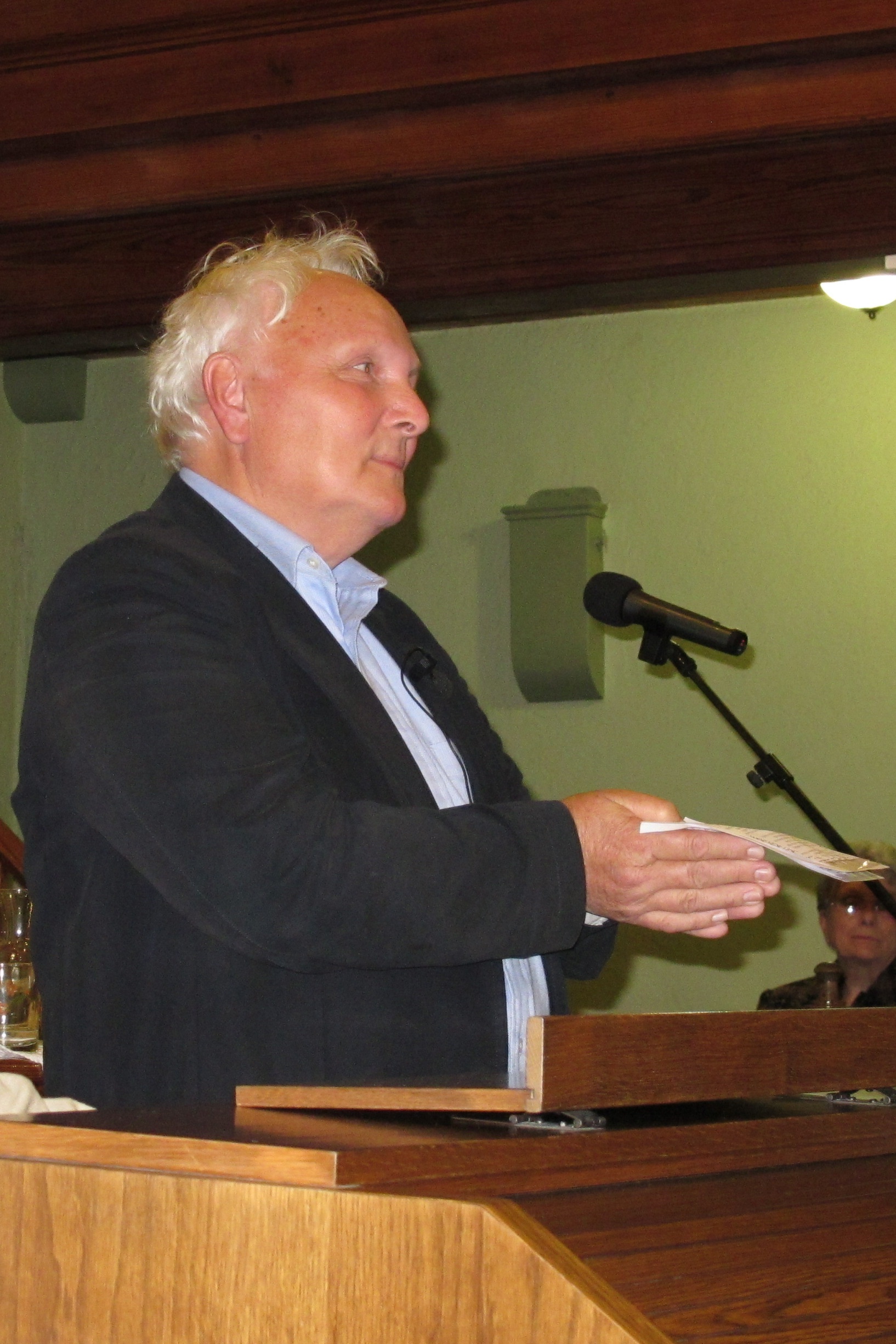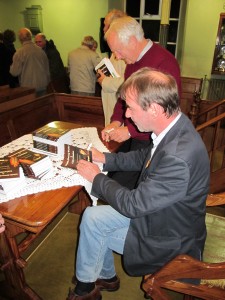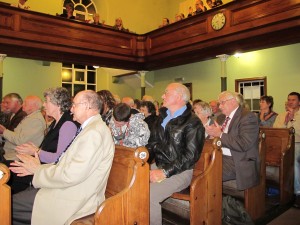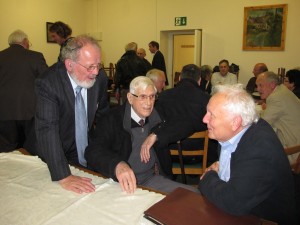
The inaugural Annual Lecture organised by Cymdeithas Waldo Society was delivered by Emyr Llewelyn at Bethel Chapel, Mynachlog-ddu, on Thursday, 30 September, 2010.
He delivered a broadside to those literary critics who insist Waldo Williams’ poetry and significance should be re-visited and re-assessed.
The essence of the retired teacher’s comments, as he set forth to dissect Waldo’s ode ‘Tŷ Ddewi (The House of Dewi/David), was that no one should stand back and distance themselves from Waldo’s output but rather embrace his warmth and greatness.

The critic from Ffostrasol is regarded as one of the finest analysts of Waldo’s poetry and this he proved once again as he explained that this particular ode derives from a spiritual experience Waldo had at Carn Llidi, near St Davids, when a young man.
As well as exalting Saint David as being a man who was pure of heart we were told that Waldo also describes the relationship between God and the ‘tŷ llwyth’ (the family or tribal home) that is the nation of Wales. The lecturer pointed out that Waldo had an immense knowledge of the early saints, their pacifism and commitment to the matters of the heart.
He insisted that such doctrines as ‘The Fall’ in the Garden of Eden and ‘original sin’ were anathema to Waldo as he believed it was the gentle heart underneath a brave constitution was the hallmark of every sincere Christian.
Following the lecture a printed version of a drama by Euros Lewis was launched dealing with Waldo and Linda’s short marriage before her untimely death in 1942. Before signing copies of ‘Linda (Gwraig Waldo)’ (Linda, Waldo’s Wife) Euros said that what drove him to write the play was the constant self-questioning regarding the significance of Waldo’s lines and none more so than, ’Nid oes yng ngwreiddyn Bod un wywedigaeth’ (In the root of Being there is no withering).
Emyr Llewelyn’s Lecture ‘Tŷ Ddewi’ was also published in two parts in the magazine Y Faner Newydd (Numbers 53, 54) edited by Emyr. Both are only available in Welsh. The lecture can also be heard here in its entirety by clicking the relevant instruction at the bottom of the page.

Translated excerpts from the lecture:
To understand the ode it must be realised that it is not the house of David i.e. the cathedral church that is the subject of the poem but another house of David. This is not an ode in praise of a house made of wood and stones but a spiritual house. This house was built from ‘indestructible stones’ namely good and just deeds in the name of God.
The House of David is a building made from the values and principles of the people who have lived on this particular piece of land and are handed from one generation to another by the means of language – the spiritual capital of our nation.
David and the early saints were men who heard the cry of God and thus opened their hearts to God. Their achievement was to ‘build a family or tribal home that was not done by man’s hands’ but rather create values and principles and ideals that would be transferred from generation to generation through the Welsh language.
It is important to understand why Saint David and the Celtic saints were Waldo’s heroes.
Reclusive men who turned their backs on the vice of cities and retreated to the wilderness in Egypt, Palestine, Arabia and Persia during the fourth century had influenced David and the other saints.
Their lives were noted for their simplicity and they had much in common with the Yogi in India and the Zen monk in China and Japan. They were not academics or theologians but low, quiet people in search of purity of heart. They supported themselves through menial work.
The lives of the Desert Fathers was a life of hard physical toil, poverty, prayer and fasting. The Celtic hermitage inspired by them contained these same elements but was also venturous, bold and charitable, and endeavouring to win over the world rather than shy away from.
Waldo admired the emphasis of the Desert Fathers and the Celtic saints upon purity of heart. Keeping the heart pure for the sake of God was their ideal. Pursuing the spirit wherever it may go was of paramount importance. It could be said that David and the Celtic saints followed the instructions of one of the Desert Fathers, ‘Whatever your soul might wish according to God, then do so, and your heart will be true.’
Another reason for Waldo’s admiration of Saint David and the other saints was the fact that their main allegiance was to God and not the state or the authority of man. These men did not believe that a Christian state was possible. They did not believe that obedience to the power of an earthly tyrant or king was above the obedience of man to his conscience and God.
The information about the Desert Fathers can be found in Thomas Merton’s book, The Wisdom of the Desert, Burns and Oats 1997

